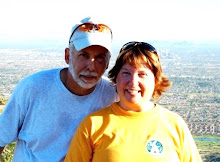I just finished reading a blog of an almost freshman in College on existentialism, despair, anguish and the individual’s path to becoming an unbeliever or atheist. I have always had a bent towards reading philosophy and science. As a young 20 something I relished in being able to read Hegel, Kierkegaard, Sartre, Nietzsche, Kant and now Hitchings. I can pretend that I really understand everything that I am reading and it makes total sense but I would be lying and attempting to be someone I am not.
What I can enjoy sharing was my journey as a Jesus freak teen and twenty-something and now as a fifty-something. I will always remember one of the brother’s statements that the more he learned and knowledge he acquired the more he realized he didn’t know much of anything. I can remember looking back and truly believing because I had read Knowing God or the God Who is There that I had truly arrived and could dialogue with the best of thinkers. Today there is Starbucks or local coffee shops that give the place and time for reading, blogging and thinking out loud that as a youth I didn’t have.
I also tire of people who pretend to know something and haven’t really read an original material from the author. Just as I am amazed at how an atheist is so quick to claim the Bible is full of holes or __________ but when asked about anything specific it is clear they have never read much or only rely on someone else’s opinion.
What I do so much enjoy in reading my friend’s kid's blog was their honesty about the difficulty of not believing in God. This for some reason caused anguish and despair in the individual’s life. I did my fair share of reading while getting my philosophy degree in college and know that especially in today’s setting it would almost be considered a relief per Hitchings or Dawkings to be freed from having a need for a deity. Yet, there seems to be someone internal that causes us grief to let go of this notion of a high power or more specifically a personal God who created with purpose and meaning.
I totally agree that one of the main faults of most believers is that they put on this façade that they have all of life’s questions figured out so they no longer doubt or questions anything?? I echo this young person’s willingness to share their struggle with the present tension of living with doubt. What if all of the tragedies in the world are happening because God really isn’t good or all-powerful? What if we created God for our own selfish purposes? I took a couple of classes in the 70’s on Process Theology that would see God as a being that is in process who doesn’t have all of the answers. Obviously I struggle with this picture of God because by definition this wouldn’t be God.
As I work daily with real people who struggle to have enough food on the table or a roof over their heads does it matter whether Hitchings book, God is Not Great and Religions Poison Everything is valid? What a person who is half dead needs is physical help then emotional help and during this process of spiritual direction. Is it always the chase that philosophers come out of contexts where they have the luxury to argue about what might be perceived as esoteric topics instead of dumpster diving?
I know that the many wars that I have watched during my life causes me to question whether God exists. I continue to see clips on You Tube about the Tsunami, earthquakes and now Flash Mobs. Does the presence of evil in the world cause me to believe in God or to disbelieve in God? It has been through the study of Theodicy that I have come back to read and reread both the Bible and a variety of authors who attempt to answer the question of what’s really happening. There aren’t any simple answers to resolve the tension inside any of us.
What do we do? Abandon the faith of our fathers/mothers? Invent a totally new way of answering these questions or just quit and give up on life, as we know it? I go back to both the parable of the Good Samaritan and the Prodigal Son as a way of understanding life. I will write and share more later. I have come to appreciate both Henri Nouwen’s writings on the Prodigal along with Tim Keller’s book on the Prodigal God.

